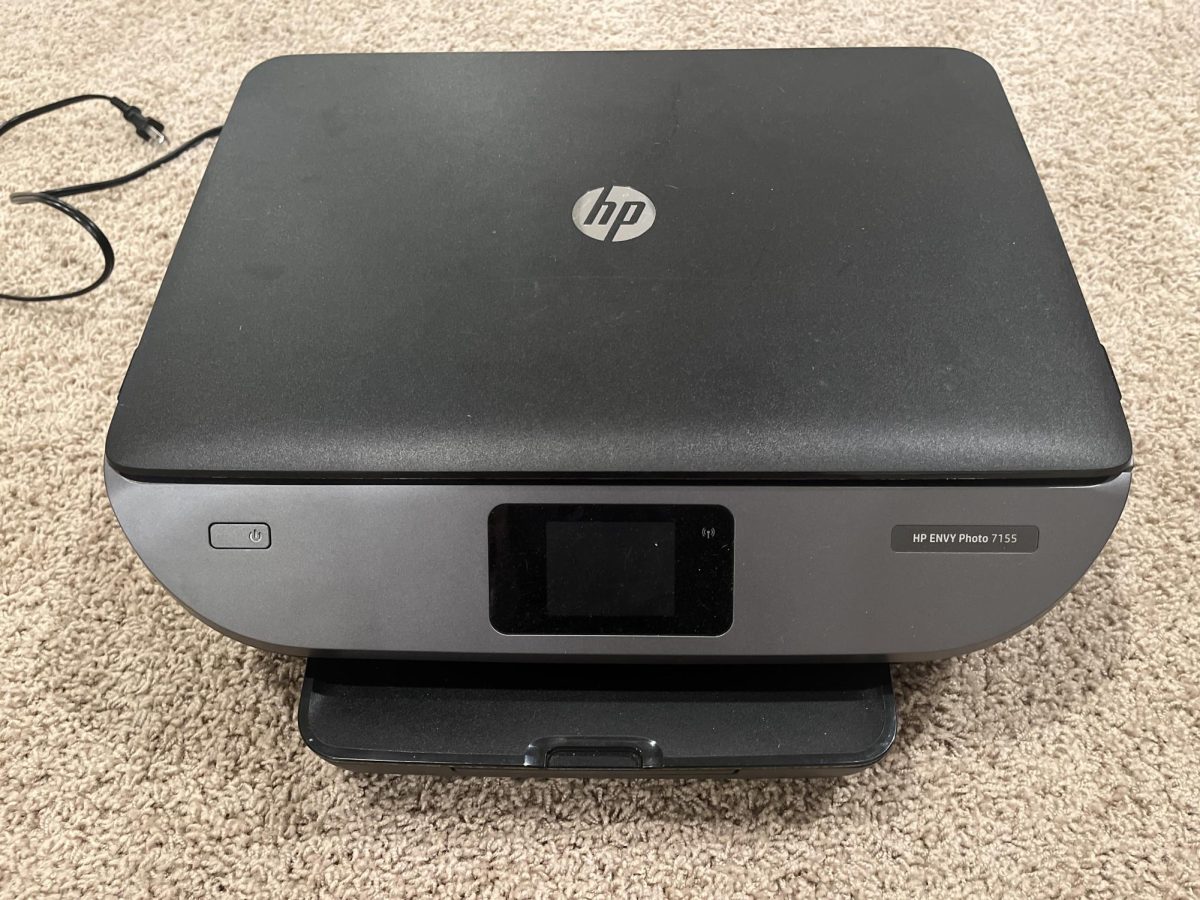HP and other companies have recently been called out for their unethical business practices by both tech news sites and tech youtubers. From monopolistic behavior to discouraging consumer repair, this article seeks to inform consumers about the deceptive practices of companies like HP.
A recent lawsuit ruled that HP’s All-In-One’s, which includes a printer, scanner and copier, were intentionally made to be defective.
When trying to scan with an HP printer with low or no ink cartridges, the printer does not allow the user to do so, despite the fact that scanning a paper requires no ink. Worse yet, HP blocks 3rd party ink cartridges if the printer is signed up for the 3-6 month free “instant ink” service, where monthly payments are made based on how many pages are printed.
Another issue is a sticker that covers the USB port for direct printing, trying to force users to connect it to the internet. This works to HP’s benefit because Wi-Fi is needed to use instant ink. Connecting online allows the printer to download and install updates, which allows HP to block more third party cartridges that are made after the release of the printer. These practices are anti-consumer, and quite shocking coming from a company with the largest market share for printers.
Junior Himanshu Jangid recently noticed that his HP ink cartridges were not lasting as long as they used to. “The ink cartridges have suffered from shrinkflation. The price of the ink cartridges have also skyrocketed. I think it’s very monopolistic to block 3rd party cartridges,” Jangid noted.
HP’s older 61 ink cartridge is Some third party manufacturers have attempted to create cheaper alternatives to HP’s expensive cartridges, such as this combo pack from Walmart’s website for a quarter of the price of HP’s XL black and color cartridges. but HP quickly blocks them in printer software updates, leaving customers angry with their lack of options.
HP has responded to the criticism with an ad campaign in Europe that claims their printers are “made to be less hated”. But issues like anti-consumer tactics, region locking, which means the printer’s ink and usage is limited to one region, and issues that “brick” devices, making them unusable, after firmware updates all beg to differ.
Senior Ryan Barnes does car photography on the side and uses an HP photo printer for its high printing quality on specialty photo paper. After learning about HP blocking 3rd party cartridges, Barnes said, “Blocking 3rd party cartridges is kind of like gatekeeping. HP wants to make more money by locking down their system, and companies like Tesla do the same thing by using a different chagrin plug than their competitors. I plan on buying another HP once this one breaks, because that’s what I’m used to.”
Consumers like Barnes keep HP afloat. People tend to prefer brands, such as Apple, that they are used to. Despite the fact that Epson’s EcoTank printers have better value and Canon’s printers have higher quality photos, HP will continue to dominate the market due to low cost of entry, with a Black Friday sale pushing one model down to $39, and name recognition.
Other anti-consumer practices have been called out as well. Companies are legally not allowed to void consumer warranties if the item was disassembled, but many manufacturers still put the stickers on products to scare consumers into paying a hefty repair fee instead of fixing the electronics themselves. Companies like Acer, MSI and PNY are just a few examples of this.
Junior Will Rages enjoys working with computer software and hardware in his free time, and he asserted that, “Placing ‘warranty void if removed’ stickers is illegal. It’s too bad that people are discouraged from repairing their own electronics, when it’s cheaper and better for the environment.” In addition to this, many modern electronics, such as the Nintendo Switch, forgo standard screws for proprietary ones, further discouraging repair of the device.
In many states around the country, right to repair laws have been proposed, and a few have already passed. In Iowa, a bill was proposed earlier this year that enacts legislation enforcing that a reasonable standard of repairability be present in consumer electronics.









